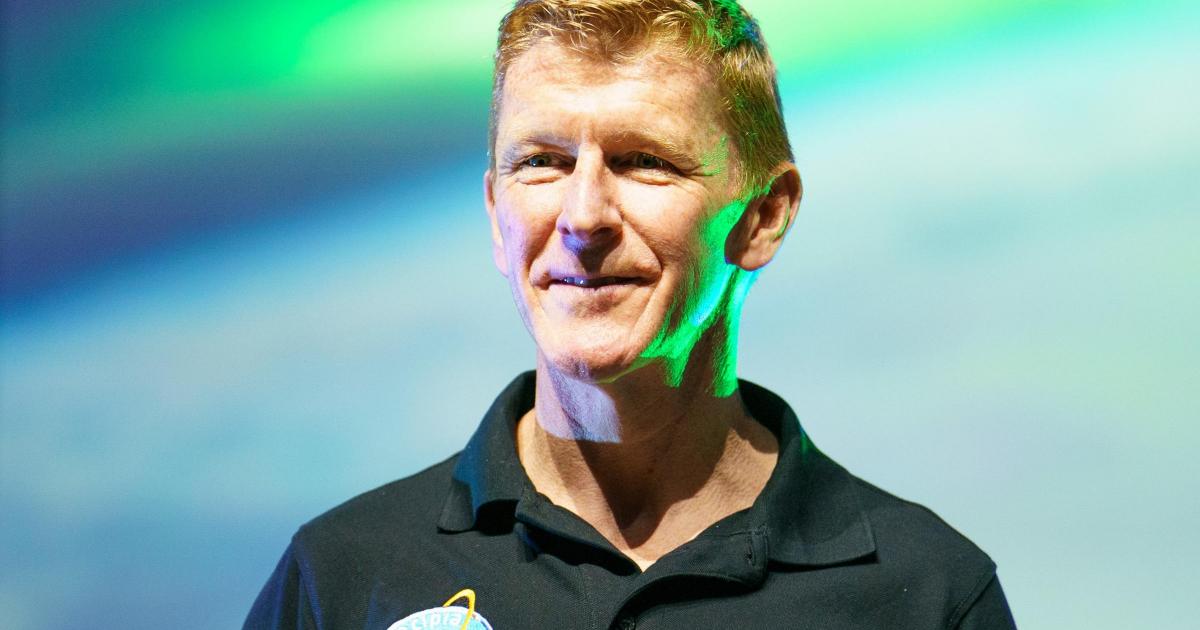Shielded from the midday blazing heat and the roar of motor cars in a darkened tent, Future Lab displayed technologies, robotics and virtual realities to excite the imaginations of festival goers in Chichester on Saturday.
Among the displays was a humanoid robot, with moving, re-active facial features powered by ChatGPT responses, creators call it Ameca.
Major Peake, the first British man to visit the International Space Station, has worked with Future Lab since its first iteration in 2017.
Despite his excitement about the new technologies and possible uses of artificial intelligence (AI), he acknowledged the environmental impact of data centres used to run them.
He told the PA news agency: “There is no limit to how much they can use ChatGPT, they can be streaming cat videos and making avatars and doing what they want with no – no concern of how much energy that is using and how much water is using to cool.
“It’s limitless, and it shouldn’t be. Every single google search is having an impact, and an AI google search is a 30% increase in energy to function than a standard Google search and you don’t even get the choice now.”
Tech companies have hugely increased their water consumption needs for cooling data centres in recent years, according to The Times, writing one 100 word email using the (GP-4) version of the chatbot is equivalent to a 500ml water bottle.
“Maybe that’s what we need next to the google search box – ‘please search responsibly’,” the former astronaut added.
Business Energy UK has estimated that ChatGPT may presently use around 39.98 Million kWh per day — enough to charge eight million phones.
Major Peake was quick to argue that the answers lie in space, using “orbital data centres”, he added that he was working with a company, Axium Space, who were set to launch two nodes later this year.
He explained: “The idea being that by the mid-2030s you have cost-parity between choosing an Orbital data centre vs a cloud server – you know, a database that would be here on earth.
“Because in space you’ve got clean, free limitless energy and you’ve got limitless ability to have thermal rejection into the vacuum of space with no impact on the environment.”
Critics of this approach, such as Dr Domenico Vicinanza – associate professor of intelligent systems and data science at Anglia Ruskin University in the UK, say it may not be that simple.
“Space-based data centres would require not only the data equipment but also the infrastructure to protect, power, and cool them. All of which add up in weight and complexity,” Dr Vicinanza told the BBC.
Asked about space and the environment, Major Peake said: “It might not hold all the answers but it holds many answers and it forms a large percentage of the solution I think.
“In terms of right now, more than 50% of our climate data is coming from space so it’s the finger on the pulse of the planet.”
The displays at Future Lab presented a window into the cutting edge of science, mapping deep space, exploring the depths of the ocean, and the latest AI and robotics.
The CEO of the National Robotarium, Stuart Miller, said the event “helped people understand what’s coming” and added that they wanted to ask how robots and humans can “live in harmony together”.
Ameca, the humanoid robot created by Cornwall-based company Engineered Arts, was the star attraction for many – able to hold and double back to parts of a conversation and answer questions quickly.
Major Peake said: “Her non-verbal responses really surprised me, and then you realise that’s AI’s interpretation of human interaction as well so it’s not just the verbal responses you’re getting, you’re getting the AI response in terms of non-verbal skills.”
Surrounded by cars, in a corner of a field in Chichester, some of the UK’s newest scientific innovations piqued the interest of the crowds, but Major Peake acknowledged there has to be “a balance” in how much AI should do, and considered whether it erodes human curiosity.
“There is absolutely a balance and that’s why it’s important to educate people that AI’s just a tool – a tool for humans to use.” he said.
Later asking: “Does ChatGPT, does AI just make it too easy for us? Does it just give it to us rather than making us work for it? And how much pleasure is there in actually finding something out rather than just reading and learning something?”
